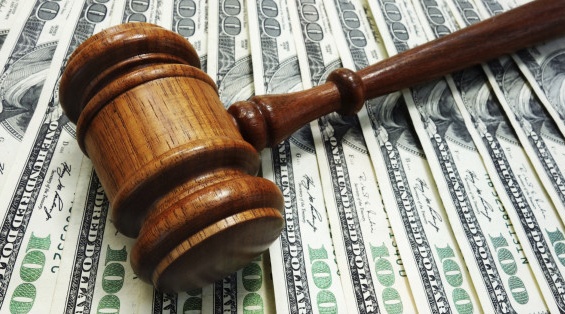Understanding Garnishment in Debt Collection
Ever wondered if a creditor can take money straight from your paycheck or bank account? They can—but only under certain legal conditions. Wage garnishment and bank account garnishment allow creditors to collect unpaid debts straight from your income or assets.
If you have unpaid consumer debts, tax obligations, child support, or defaulted student loans, creditors can take legal action to recover the money. Most private creditors need to sue you and win a court judgment before garnishing your wages. However, government agencies like the IRS can garnish wages for unpaid taxes without a court order.
If you’re concerned about how to stop wage garnishment, this post will explain your rights, legal protections, and ways to challenge or prevent garnishment.
What Is Garnishment?
Garnishment is a legal process that allows creditors to recover unpaid debts by requiring a third party—like your employer or bank—to withhold funds from your income or assets. The most common types of debt that result in garnishment include unpaid consumer debts, defaulted student loans, unpaid child support or alimony, and overdue federal or state taxes.
For most debts, creditors need to file a lawsuit against you and win a court judgment before they can garnish your wages or bank account. However, government agencies can garnish wages without a court order for unpaid taxes and federal student loans.
If you’re facing garnishment, it’s important to know your rights and explore options to stop or reduce it.
How to Stop Wage Garnishment
If your wages are being garnished, there are legal options to stop or reduce the amount taken from your paycheck. Here are the most effective strategies:
-
File an Exemption Claim
Some income sources—like Social Security benefits, disability payments, and certain public assistance funds—are protected from garnishment. If your wages or bank account contain exempt income, you can file a claim with the court to stop the garnishment.
-
Negotiate with the Creditor
Creditors may agree to a lump sum payment or a lower monthly payment plan instead of garnishing your wages. Contact the creditor directly or work with a legal professional to negotiate a more manageable arrangement.
-
Challenge the Garnishment in Court
If the garnishment was improperly calculated, based on an expired debt, or causing financial hardship, you may be able to file an objection with the court to reduce or stop it.
-
File for Bankruptcy
If you are overwhelmed by multiple garnishments, filing for bankruptcy can immediately halt most wage garnishments through an automatic stay. Bankruptcy should be a last resort, but it can provide relief from overwhelming debt.
Types of Garnishment
-
Wage Garnishment
If a creditor obtains a garnishment order, your employer must legally withhold a portion of your paycheck and send it directly to the creditor. Under federal wage garnishment laws, the Consumer Credit Protection Act (CCPA) limits how much can be taken from your wages.
The maximum garnishment allowed is 25% of your disposable earnings or the amount exceeding 30 times the federal minimum wage (currently $7.25 per hour), whichever is lower. If your weekly disposable earnings are $217.50 or less, it can’t be garnished. However, if your earnings are between $217.50 and $290, only the portion above $217.50 can be garnished. These legal protections make sure employees can still have some income for basic living expenses.
-
Bank Account Garnishment
If a creditor wins a judgment against you, they can freeze and withdraw money from your bank account. This process, known as a bank levy, can result in the immediate seizure of funds up to the amount owed. Unlike wage garnishment, which happens gradually with each paycheck, a bank levy can drain your account in one transaction, potentially leaving you without access to necessary funds.
Some types of income—like Social Security benefits and disability payments—can’t be included in a bank garnishment. However, these protections are not automatic, and you may need to file an exemption claim to stop those funds from being seized.
-
Child Support and Alimony Garnishment
Court-ordered child support and alimony payments have stricter garnishment rules compared to other types of debts. If you are already supporting another spouse or child, up to 50% of your disposable earnings can be garnished to cover unpaid support obligations. If you’re not supporting another dependent, the garnishment limit increases to 60% of your disposable earnings.
Additionally, if your child support payments are more than 12 weeks overdue, an extra 5% may be garnished to cover the arrears. These garnishments are usually enforced through state child support agencies, and employers are required by law to comply with withholding orders.
-
IRS Wage Garnishment and Government Debt Garnishment
Certain debts owed to government agencies, like unpaid taxes and defaulted federal student loans, follow different garnishment rules than private debts. Unlike most creditors, the IRS can garnish wages without a court order for unpaid taxes. They can also seize tax refunds through the Federal Payment Levy Program, which allows them to collect outstanding tax debt before issuing refund payments.
If you default on federal student loans, the government can garnish up to 15% of your disposable earnings without needing to sue you or obtain a court judgment. Since these garnishments are imposed by federal agencies, state laws don’t protect you against IRS wage garnishment, making it more difficult to challenge or stop compared to private debt collection efforts.
Legal Protections Against Garnishment
If your wages or bank account are being garnished, you have legal rights under federal and state law:
- Your employer can’t fire you over a single wage garnishment. The CCPA protects employees from termination due to one wage garnishment, but if you have more than one garnishment, this protection doesn’t apply.
- Federal wage garnishment laws limit how much can be taken from each paycheck.
- You can challenge garnishment in court if you think it was issued in error, based on expired debt, or if you qualify for an exemption.
If you’re struggling with garnishment, consulting a judgment enforcement attorney can help you explore your options.
Garnishment and Your Legal Options
Understanding what garnishment is and knowing your legal options can help you maintain control of your finances. If you’re facing wage or bank account garnishment, there are legal ways to challenge, reduce, or stop it.
If you need help stopping garnishment, consulting a judgment enforcement attorney can provide legal guidance and solutions tailored to your situation.
Resources:
https://www.dol.gov/general/topic/wages/garnishments
https://www.dol.gov/agencies/whd/fact-sheets/30-cppa




